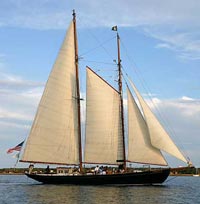 |
| The view from my window as I attempted to drive to work |
We have a snow day today, an occurrence which, though frequent in my hometown of Blackfoot, Idaho, is more rare here in Eugene. The snow started sometime around midnight and has continued to softly but continuously dust the trees, hills, and houses with white powder. The world outside is quiet, unusually hushed by the presence of snow. I confess that I hate snow--I hate the cold, I hate how it leaves the once-green world brown in its aftermath, and I hate how dangerous it makes the roads. But from my spot, curled up on the couch with coffee in hand and the curtains pulled back so I can see the snowglobe vista outside, I enchanted with the winter wonderland outside.
I am also grateful for the snow day because it means that as I continue reading The Riddle of the Sands, I can keep my laptop open and ready for notes, rather than scribbling my ideas on napkins and old receipts that I shove into pockets or the black hole that is my purse. It also means that I can read for long lengths of time, rather than sneaking in five or six pages on my work breaks and during lunch.
As I have confessed that I dislike snow, I must now add a second confession: I love everything British. I love English accents, I love their at-once old fashioned and yet modern system of governance (the maintenance of a monarchy alongside their Parliament), I love their teas, I love the way they add a “u” to words like color and favorite.* I am fascinated by British culture and British history--I could go on for days on the importance of the British monarchy and its influence on America and American law, or on the truly intriguing evolution of culture and attitude that transformed inhabitants of England from being “English” to being “British.” In short, I am an anglophile.
 |
| Webster's Dictionary Noah Webster was the revolutionary patriot who sought to distinguish American English from proper English |
*Along with several other subtle distinctions, the “u” was intentionally dropped from particular words like color and favorite not long after we ceased to be British-America, as a way to distinguish the British from the American. I find this historical tidbit fascinating. As a child, though, I spent a year in Ireland and to this day I struggle to remember if it’s favorite or favourite, realize or realise.
This is, in large part, why I am so thoroughly loving The Riddle of the Sands--because it is so delightfully British. In my last post I tried to qualify this assessment, but I find it difficult. Both Davies and Carruthers have habits and mannerisms that set them apart as particularly British (as opposed to American or even ambiguously European). Their speech is peppered with stereotypically English phrases like “I say” and “old chap,” but more than that, it’s their attitude that marks them as British. The story’s plot is driven by their outrage that Herr Dollmann, an Englishman, would betray king and country to become a spy for Germany. Davies’ feelings are understandable, particularly once one takes into account the time period (this was published in 1903) and the increasingly tense political climate throughout Europe. While Davies and Carruthers seem to correctly sense that war is inevitable, they bear no ill will towards Germany, and, in fact, Davies holds some level of admiration for the German Emperor Wilhelm II. Nor do they direct any outrage towards Germany for hiring spies and for secretly amassing naval power; instead, their anger is directed solely at Dollmann for turning his back on England and spying for another country. Both men are infuriated at the thought of an Englishman betraying his own country. Their duty, as Englishmen, is to expose Dollmann and prepare Britain for war. Above all, this constant awareness of themselves as Englishmen (and their similar villainization of Dollmann the Traitor) is what makes Davies and Carruthers so decidedly British.
I find this inherent British-ness charming. Davies and Carruthers are rallied by a love of “King and Country.” Disregarding their own safety, these two men are compelled to brave the harsh seas to unmask Dollmann; they are transformed by patriotism from two yachting enthusiasts into bona fide spies, and I find myself swept up in their patriotic fervor. As much as I adore this American republic with its three branches of government and its delightful system of checks and balances, we lack such a stirring cry as “For King and Country.” “For Congress and Country” just doesn’t have the same ring.
I also find the British nature of this novel rather ironic. Though born in England, Erskine Childers is best known for his involvement with the nascent Irish Republican Army, a body which was inherently and unmistakably anti-British. This involvement with the Irish Free State movement, of course, came later in Childers’ life, and over a lifetime a person’s political views are likely to change. All the same, though, it’s ironic that the same man who published this charmingly British novel was later executed for being too radically Irish.
*****
The sun is shining now, so I must turn away from my musings to move to a spot where I may read in the sun and enjoy both this momentary break in snow showers and my thoroughly wonderful book.


